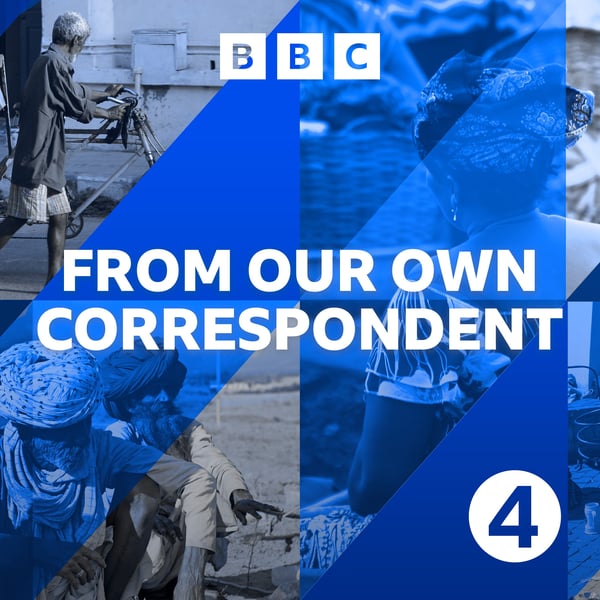Russa’s Troops: Not Really a Threat to Ukraine?
From Our Own Correspondent
BBC
4.4 • 1.3K Ratings
🗓️ 27 January 2022
⏱️ 29 minutes
🧾️ Download transcript
Summary
Transcript
Click on a timestamp to play from that location
| 0:00.0 | BBC sounds, music, radio, podcasts. |
| 0:05.2 | Good morning. Today, what's it like to arrive home after years of being forced to keep |
| 0:10.5 | away only to find that life can be anything but a return to normal? We hear about the |
| 0:17.0 | bittersweet experience of Afghans back in the villages they once fled. Turkey seems |
| 0:23.6 | increasingly keen to assert its influence abroad in Syria, in Libya and in the wider |
| 0:29.1 | Middle East. But is it time to consider the country as a major seafaring par? What's |
| 0:36.3 | in a name? A question for Shakespeare but one very pressing right now for our Swedish |
| 0:41.7 | correspondent, who finds people struggling with a correct way to say, Matilda. And lessons |
| 0:48.8 | for all of us from the far north of Kenya where farmers and fishermen have shown the benefits |
| 0:54.1 | of staying flexible. First to Russia, and its tense standoff with Ukraine. It might seem |
| 1:01.4 | like a straightforward case of one country menacing another, with about 120,000 Russian troops |
| 1:07.7 | mustering on their neighbour's border. Russia has already occupied the Ukrainian territory |
| 1:13.6 | of Crimea, and is widely believed to be helping separatists in the country's east. But |
| 1:20.1 | as an old saying, has it where you stand depends on where you sit. Perspectives can very |
| 1:25.9 | widely. Francis Skar was recently sitting in the rather intimate surrounds of a Russian |
| 1:31.9 | bathhouse, and found his companions holding a very different view of who was threatening |
| 1:37.0 | whom. A wave of steam buffets my face as my friend |
| 1:41.4 | Victor, an athletics coach in his early 60s, pours a ladle of water onto the baking hot |
| 1:46.7 | stones in his bania, a traditional Russian bathhouse. 85 degrees already, almost there, he |
| 1:54.0 | tells me with a toothy grin, after casting a glance at the thermometer hanging on the |
| 1:58.5 | pine wall. It's not just here that the temperature is rising, though. Officials from my country, |
| 2:04.1 | the UK, and other western nations say Russia has mustered 100,000 troops on its border |
... |
Please login to see the full transcript.
Disclaimer: The podcast and artwork embedded on this page are from BBC, and are the property of its owner and not affiliated with or endorsed by Tapesearch.
Generated transcripts are the property of BBC and are distributed freely under the Fair Use doctrine. Transcripts generated by Tapesearch are not guaranteed to be accurate.
Copyright © Tapesearch 2025.

